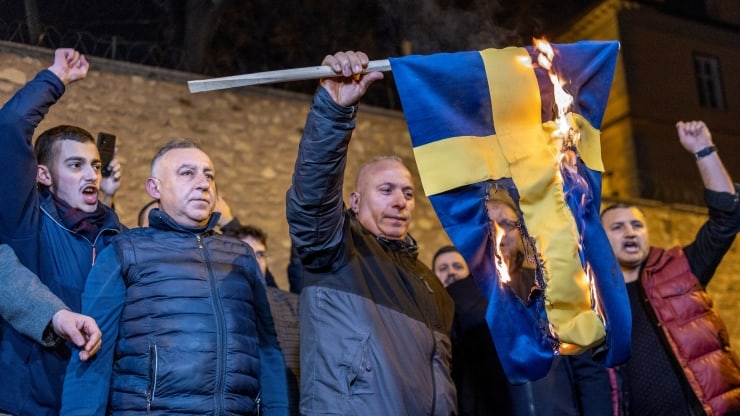Levent Kenez/Stockholm
Far-right Danish-Swedish politician Rasmus Paludan burned the Qur’an outside the Turkish Embassy in Stockholm on Saturday, sparking huge protests in Turkey. Islamist groups under the control of President Recep Tayyip Erdoğan took the lead in organizing the demonstrations across the country. Local authorities, who in the past have not allowed the gatherings of union workers, women’s platforms and opposition and Kurdish groups, did not intervene in the government-supported protests against Sweden.
The most active group in the protests was without doubt TÜGVA, the Turkey Youth Foundation, which is led by the president’s son, Necmettin Bilal Erdoğan. The foundation works closely with Turkey’s spy agency, the National Intelligence Organization (Milli İstihbarat Teşkilatı, MIT), and the Turkish Foreign Ministry.
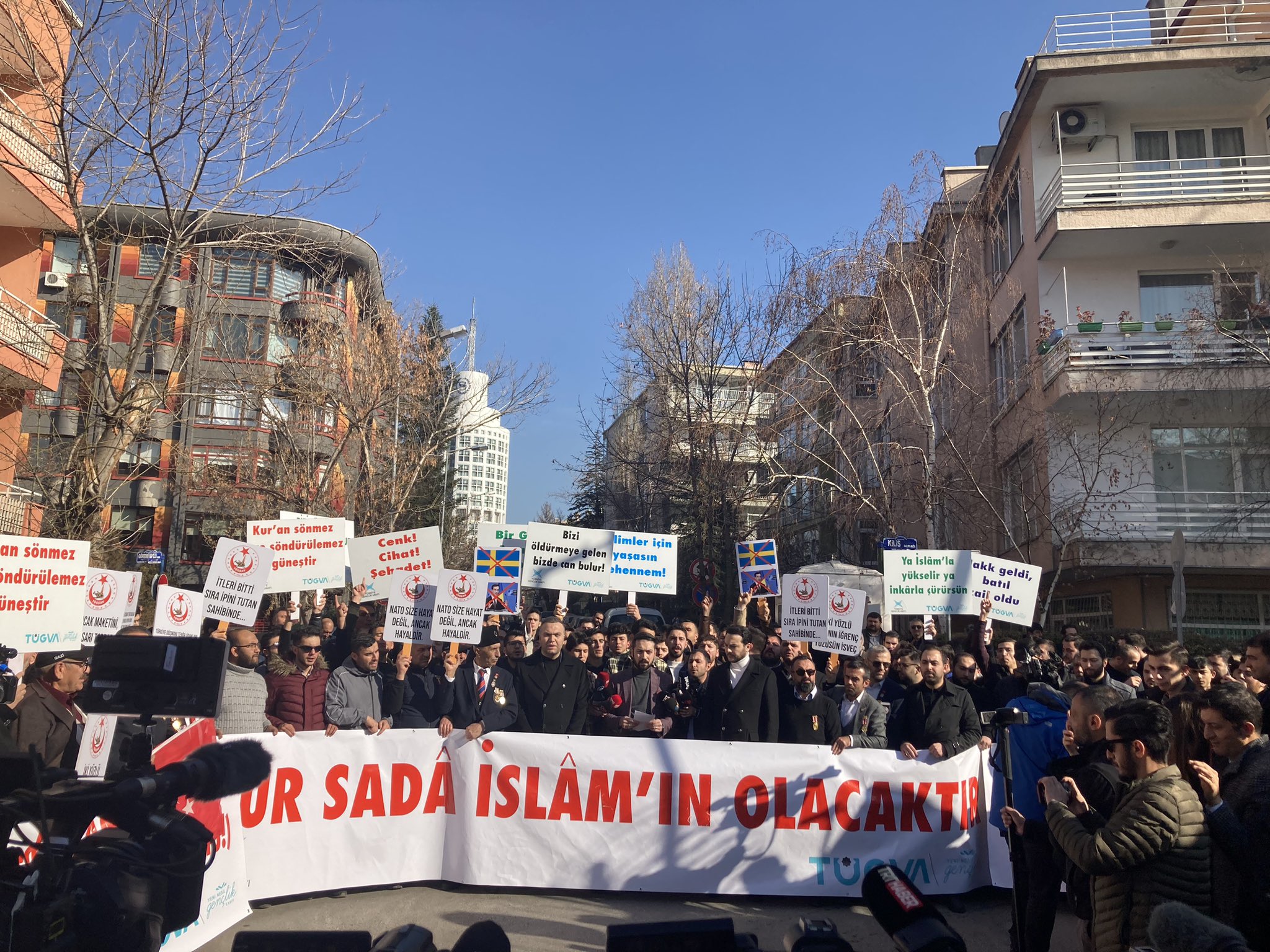
Inviting its supporters from all over Turkey to protest against Sweden, the foundation also organized a large march on İstanbul’s famous İstiklal Street, where the Swedish Consulate General is located. Police authorities usually prohibit marches on the touristy street but turn a blind eye to TÜGVA events. The foundation also staged a protest in front of the Swedish Embassy in Ankara. Banners reading “Battle, Jihad, Martyrdom” were carried during the demonstration and jihadist slogans were frequently chanted.
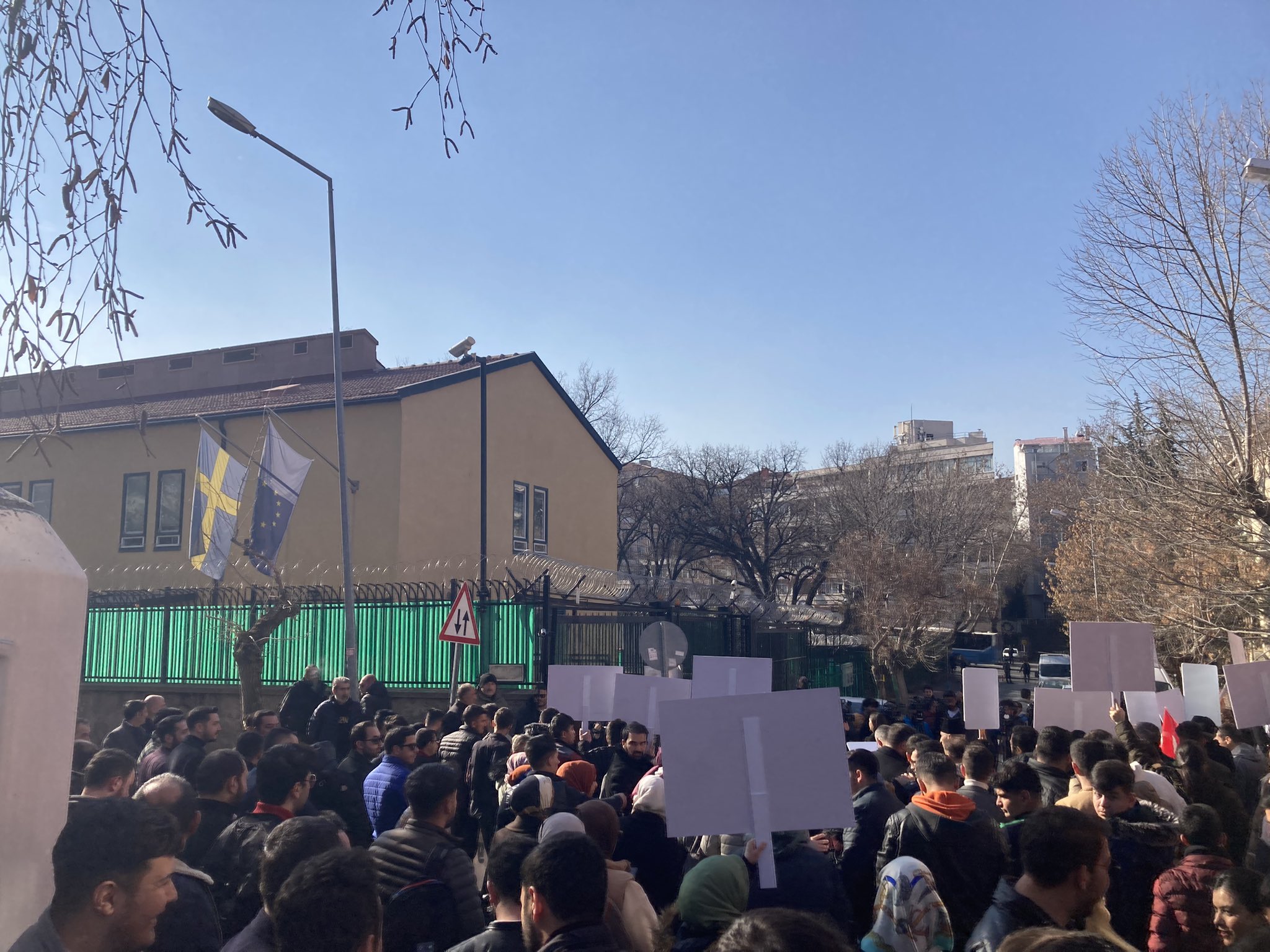
The ideological underpinnings of TÜGVA are rooted in Islamist political activism coupled with jihadist motivations. When the driver behind the ideological basis of the foundation is examined, two controversial names come to light. One is Hayrettin Karaman, also known as the chief fatwa (religious edict) giver for Erdoğan, whom he effectively declared caliph. Karaman openly advocates the view that all Muslims are obligated under Islam to support Erdoğan.
Another ideologue is Nureddin Yıldız, a radical cleric who is close to the Turkish president. Yıldız openly advocates armed jihad, describes democracy as a system for infidels and says it can only be used as a means of deception to rise to power.
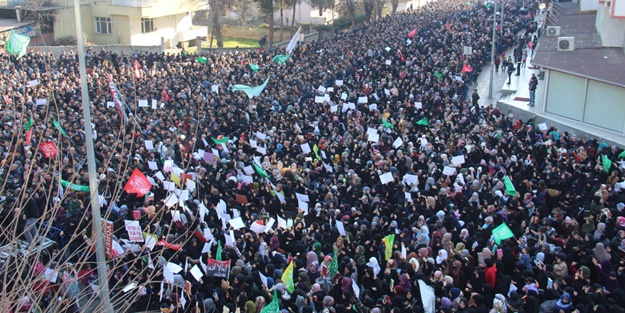
The biggest protest against Sweden took place in Batman, a Kurdish city in the Southeast. Thousands of people participated in the demonstration, organized by the Free Cause Party (HÜDA-PAR), the political wing of the Iran-backed Turkish Hizbullah. Erdoğan supports HÜDA-PAR against the pro-Kurdish Peoples’ Democratic Party (HDP), which the Turkish government claims to be affiliated with the outlawed Kurdistan Workers’ Party( PKK) in Kurdish-dominated cities. Hizbullah has quietly been reorganizing itself under a number of foundations, associations and other entities since Erdoğan took office in 2003.
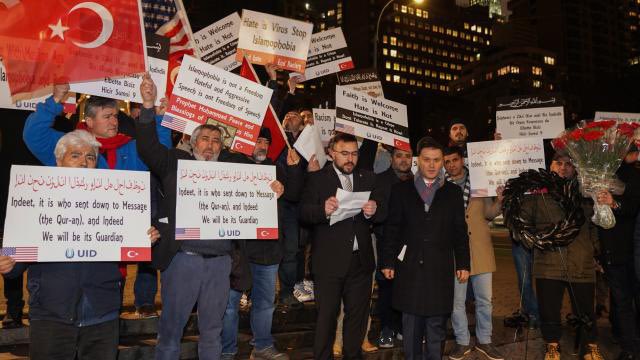
Slogans were shouted during the demonstration in Batman in both Kurdish and Turkish, including “Break the hands reaching for the Qur’an,” “Muslim, where are you, the Qur’an is being burned” and “Get your dirty hands off our Qur’an.” In a speech in Kurdish Beşir Şimşek, chairman of the Hizbullah-affiliated Qur’an Generation Platform, claimed that the burning of pages of the Qur’an in Stockholm was a Swedish state-sponsored act.
Among the groups participating in the demonstrations was Islamist terrorist group the Islamic Great East Raiders Front (İslami Büyük Doğu Akıncıları Cephesi, IBDA-C). People who tried to enter the Swedish Consulate in İstanbul on Sunday night but were forced back by the police were seen making the hand sign of the IBDA-C.
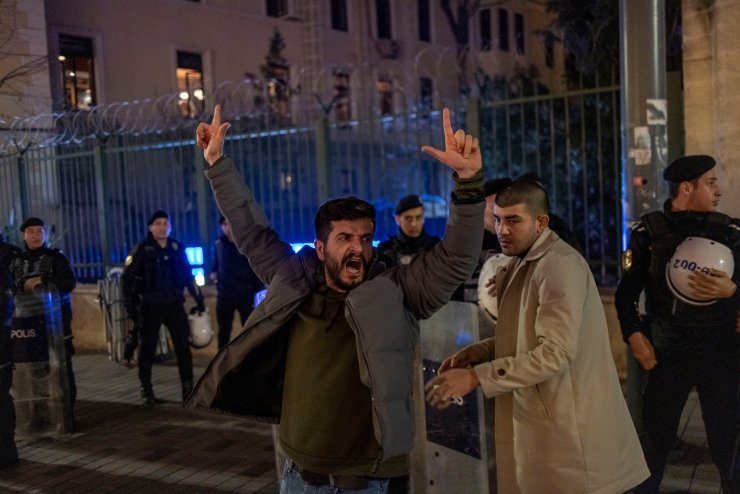
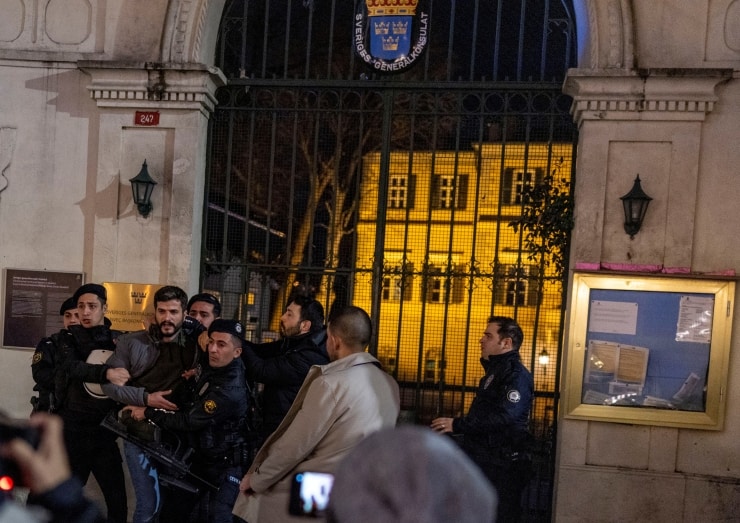
Nordic Monitor previously reported that the Erdoğan government managed to stop the monitoring of the group in January 2014 when it launched a major shakeup in the Turkish police department with an unprecedented reshuffling and numerous dismissals. The purge took place after the December 2013 corruption investigations that incriminated then-prime minister Erdoğan, his family members and his business and political associates in an Iran sanctions busting scheme.
Another group that organized protests was the government-backed Memur-Sen civil servants union. The conservative union, whose events Erdogan frequently attends and which he supports against the empowerment of leftist unions, gathered in front of the Swedish Embassy to protest the burning of the Qur’an.
The Anatolian Youth Association (AGD) and the National Youth Foundation (MGV) also organized protests across Turkey. The groups, which have representation in all Turkish provinces, are affiliated with the National View (Milli Görüş), which has traditionally been close to the political stance of Turkey’s first Islamist prime minister, the late Necmettin Erbakan, and his successors. The movement currently supports the opposition Islamist Felicity Party (Saadet Partisi).
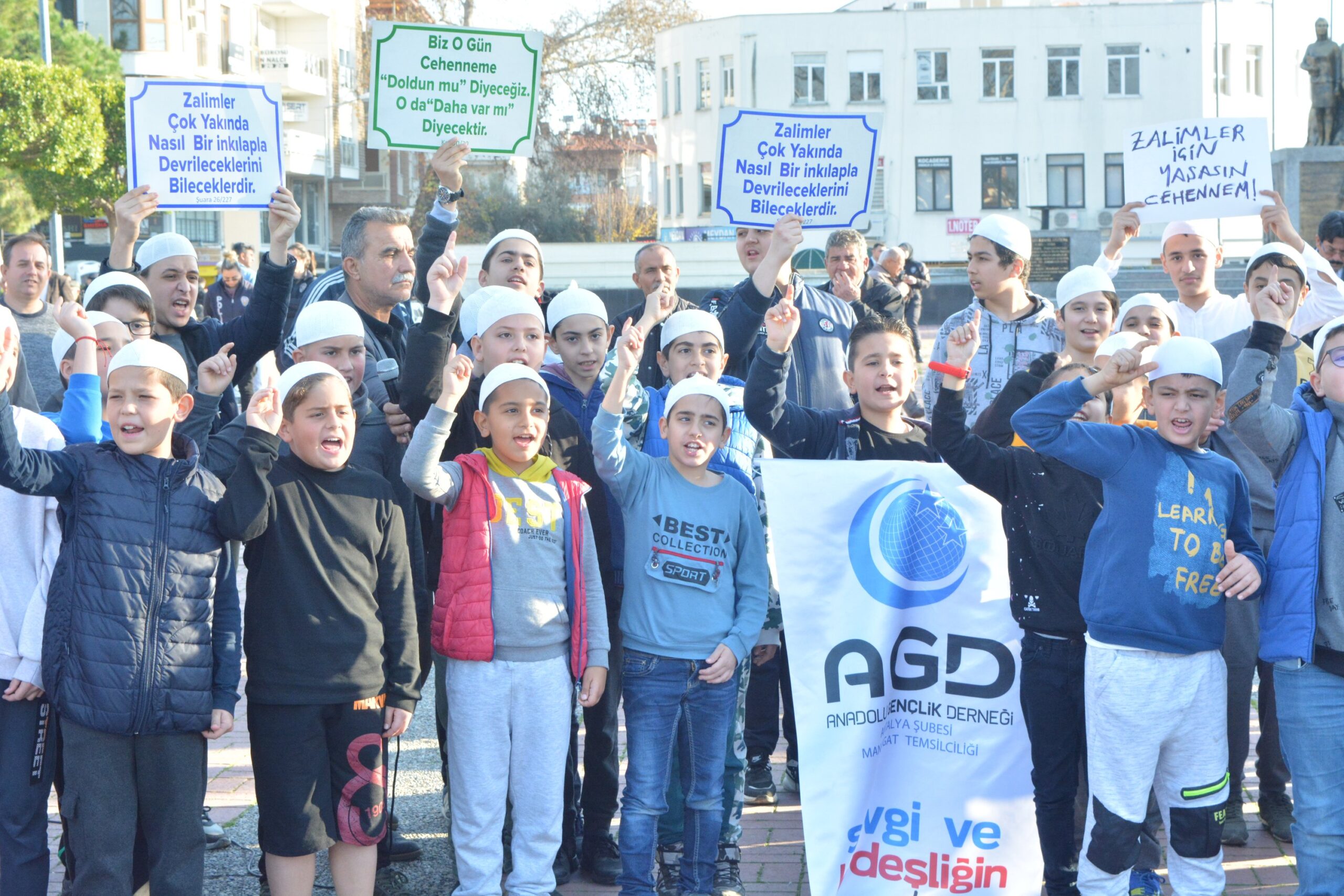
Erdoğan, a former member of Milli Görüs, said he took off his National View hat and would pursue a more liberal policy, distancing himself from his former colleagues in 2001. However, after Erdoğan’s consolidation of power, defeating the military tutelage and reintroducing his former Islamist agenda, the supporters of Milli Görüş began to vote for Erdoğan to a large extent. Erdoğan attaches great importance to the group whether at home or abroad since each and every vote is critical.
Political observers speculate that National View followers could support Erdoğan in the presidential election if he ran against a secular candidate despite their opposition to the Turkish president.

